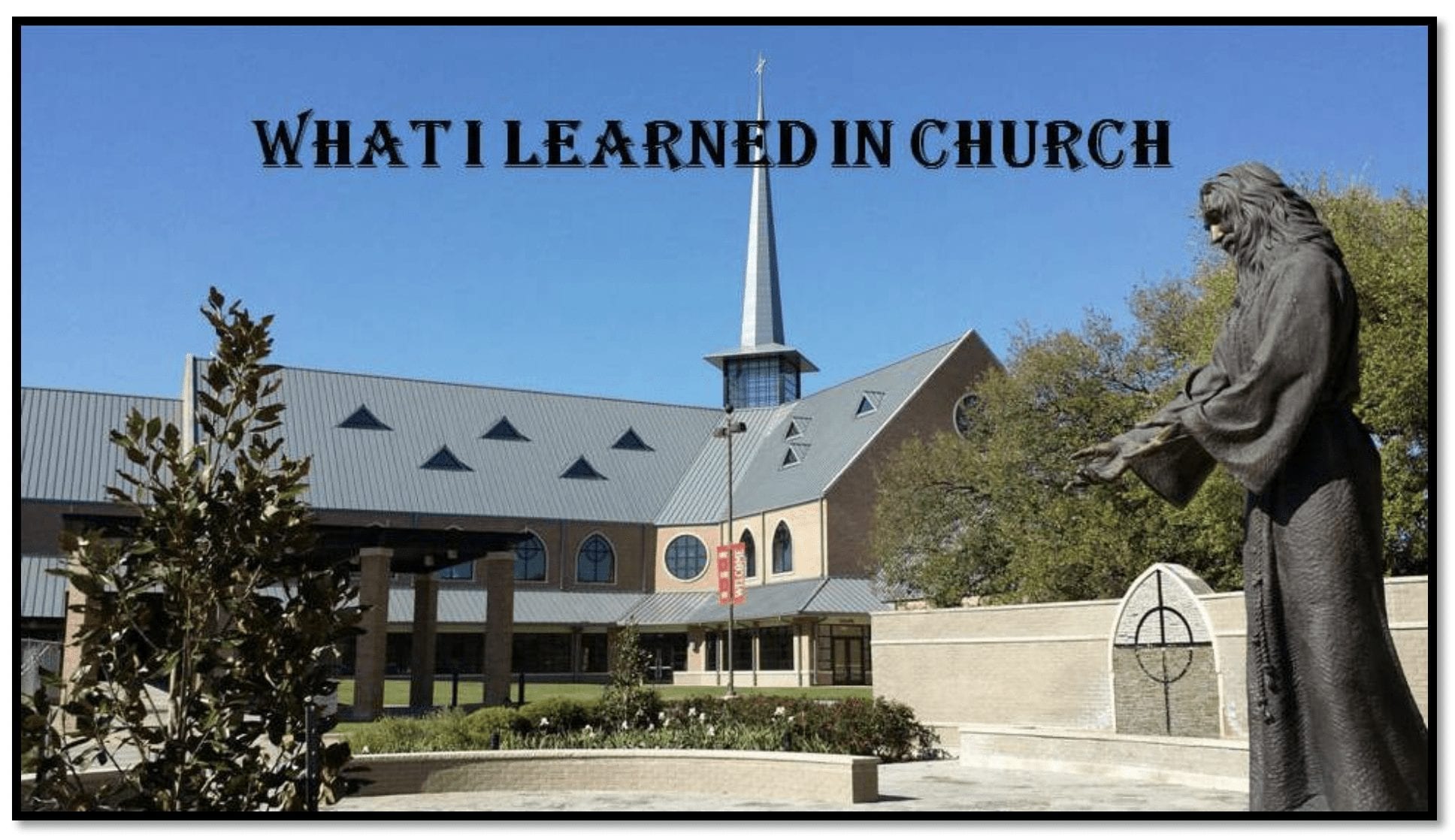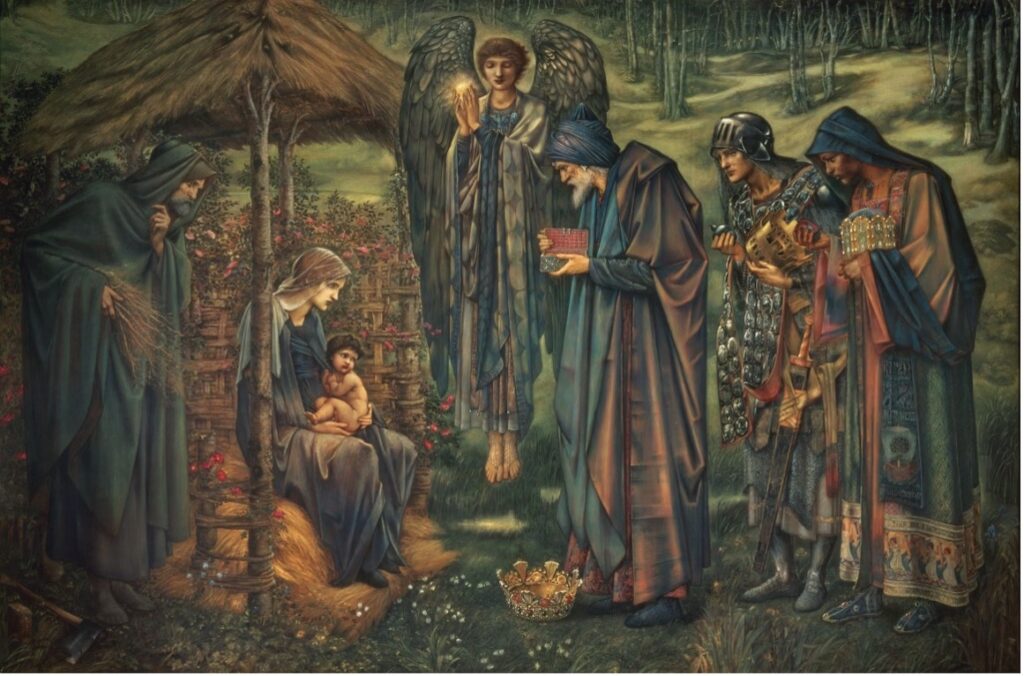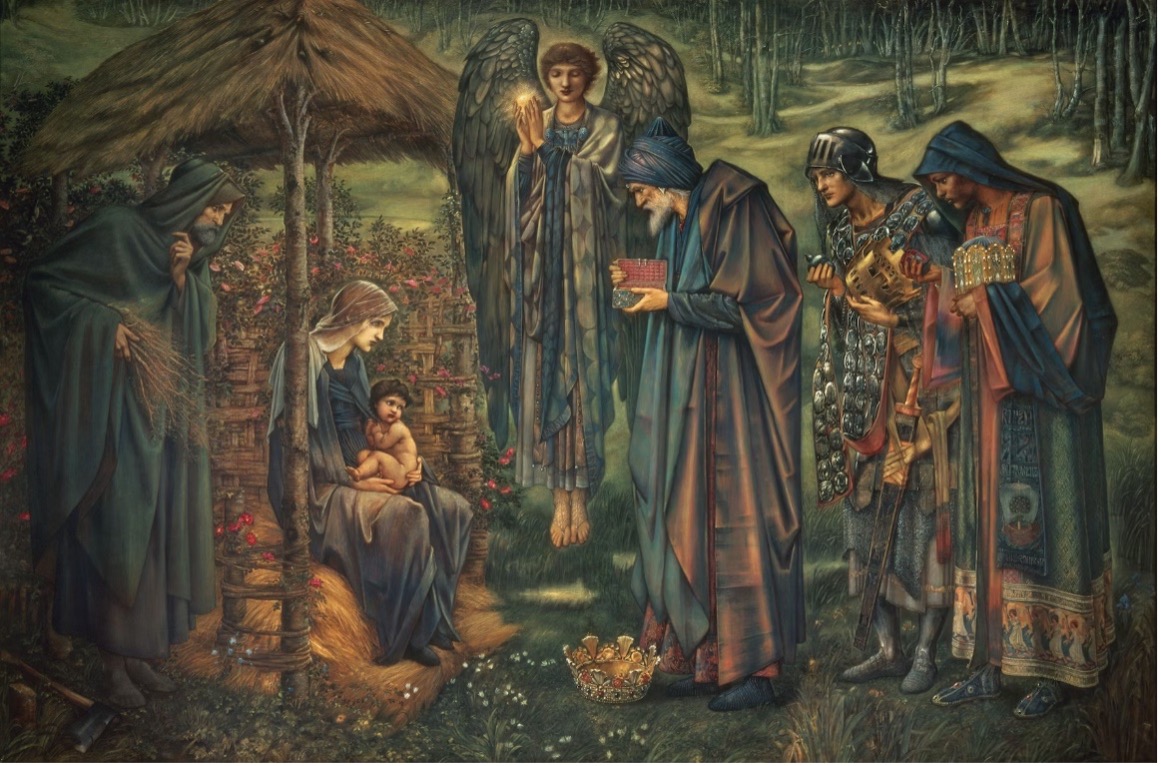
Luke 1:26-38 (NIV)
In the sixth month of Elizabeth’s pregnancy, God sent the angel Gabriel to Nazareth, a town in Galilee, to a virgin pledged to be married to a man named Joseph, a descendant of David. The virgin’s name was Mary. The angel went to her and said, “Greetings, you who are highly favored! The Lord is with you.” Mary was greatly troubled at his words and wondered what kind of greeting this might be. But the angel said to her, “Do not be afraid, Mary; you have found favor with God. You will conceive and give birth to a son, and you are to call him Jesus. He will be great and will be called the Son of the Most High. The Lord God will give him the throne of his father David, and he will reign over Jacob’s descendants forever; his kingdom will never end.” “How will this be,” Mary asked the angel, “since I am a virgin?” The angel answered, “The Holy Spirit will come on you, and the power of the Most High will overshadow you. So the holy one to be born will be called the Son of God. Even Elizabeth your relative is going to have a child in her old age, and she who was said to be unable to conceive is in her sixth month. For no word from God will ever fail.” “I am the Lord’s servant,” Mary answered. “May your word to me be fulfilled.” Then the angel left her.
One of the silliest Christmas songs I’ve ever heard is “Grandma Got Run Over By a Reindeer.” Here’s the back story to this goofy song. Most of us have heard it I’m sure. Love it? Hate it? It was originally performed by a husband-and-wife duo by the name of Elmo and Patsy Trigg Shropshire in 1979. In the song, there’s this grandma and she’s sitting around celebrating Christmas Eve with her family. She’s really enjoying the party but is off her meds and gets drunk on the spiked eggnog. She then staggers outside into a snowstorm. All the while the family is begging her to stay in. The next day she’s found trampled to death by what looks like Santa and his reindeer. Incriminating reindeer hoof marks are found on Grandma’s back.
Later the family gathers once again. All dressed in black. They wonder if all the Christmas gifts they bought for Grandma should be returned. With that, they go on with Christmas dinner as usual. The centerpiece on the table is blue with silver candles that coincidently match Grandma’s hairpiece. Seems Grandpa isn’t much phased by his wife’s parting and spends the day having a high old time.
With most stories, there’s a moral. This story is no different. The moral is, or should I dare say “warning” is that one should never give a driver’s license to a man who drives a sleigh and plays with elves. Bet Santa was surprised when he learned of Grandma’s demise.

Photo by krakenimages on Unsplash
Here’s a little more info about this song. A guy by the name of Randy Brooks who was with a young country band played the song for Elmo and Patsy in December of 1978. Brooks was inspired by a Merle Haggard Christmas song about a grandma. Elmo and Patsy recorded the thing and Brooks hated it. But by 1984 it became the #1 song in the country—above “White Christmas.” Now the moral to this story is it’s amazing how ordinary things turn into extraordinary things given the right set of circumstances.
Our lives can be ordinary. But God can turn it extraordinary. The story of Mary is one such example of this. Mary was just an ordinary young woman. A human being that God blessed and who became extraordinary. Mary finds favor with God but she doesn’t understand because she considers herself ordinary. Why does God favor Mary? It’s a “just because” case. God loves us “just because” and not because of something we’ve done.

Photo by DDP on Unsplash
If we believe God loves us “just because” then we should believe that he can take our ordinary life and make it extraordinary. In Mary’s case, God sends an angel to tell her that she will bear a child and that the child is the Messiah. God’s son. Can you imagine the look on her face? Can you imagine the fear?
When God calls us to do something, He’s not interested in excuses. God will do the heavy lifting. There’s nothing impossible for Him. This is where trust comes into play. Like Mary, we must say yes. “I am the Lord’s servant,” Mary answered. “May your word to me be fulfilled.” Then the angel left her.” (Luke1:38)
Although ordinary, Mary was a young girl of courage and strength. Wouldn’t she have to be? She risked shame, abuse, abandonment from her family, and maybe even stoning. Regardless, she went on to tell Joseph. Perhaps she even had to tell family and friends. I’ve always thought her to be remarkable. Her relationship with God was deeply rooted. Her relationship with Elizabeth further bolstered her courage. Elizabeth described her as “righteous before God, walking in all the commandments.” (Luke 1:6)
Because Mary had pleased God through her trust in Him and her faith in Him, this served to shield her throughout the challenges she would face. When Jesus became a man and Joseph died, Mary lived to see her Son beaten horribly and crucified. She was ordinary and became extraordinary.
Our callings are similar. God calls us to be the people others see as extraordinary. They see how God can work in our lives.
What do you bring to the table in your ordinary life?

Photo by Aaron Burden on Unsplash
And that’s what I learned in Church……see ya next time!
Merry Christmas
Jesus is the reason for the season.

